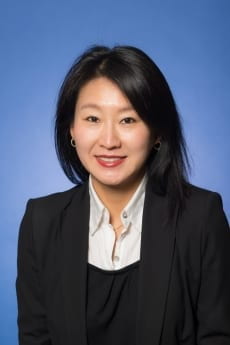12/7/2021 | Suspicious Deaths: Forensic Medicine, Dead Bodies, and Criminal Justice in 18th-Century Korea
Sponsored by the Harvard University Asia Center and convened by Professor Victor Seow, Department of the History of Science; Co-sponsored by the Korea Institute, Harvard University
Tuesday, December 7, 2021
10:30 AM – 12:00 PM EST
Zoom Event
This presentation explores the theme of criminal justice in Chosön Korea (1392-1910) by investigating forensic medicine and the postmortem examination of dead bodies. It focuses on homicide cases to probe into the cultural meaning of interpersonal violence. Many homicide cases we find in legal archives continue to reflect in our present-day society, These cases provide a window for us to understand how criminal justice was socially and culturally shaped and altered over time. The practice of forensic medicine played a significant role in search of “truth” and capacitated legal authorities to visualize violent behavior committed against the victims. By using dead bodies as a site, this study addresses the following questions: how did the dead speak grievance through their bodies when forensic medicine was applied in search of truth; what knowledge of medicine was applied when seeking the cause of death; how were “law” and “medicine” complexly intertwined to shape and mold legal reasoning and argument; what forensic texts were circulated in East Asia and how did forensic practice evolve in the Chosön; how did inquest officials reconstruct crime scenes and visualize violence when performing an autopsy; and how did inquest officials treat different forms of legal and medical knowledge in the practice of post-mortem examination. By analyzing a wide array of sources, including forensic texts, inquest reports, criminal records, legal codes, royal edicts, and veritable records, this study demonstrates the development of forensic medicine and how forensic practice was associated with Neo-Confucian concepts such as benevolent rule, leniency, and judicial prudence (humhyul 欽恤).
Speaker

Jisoo M. Kim is Korea Foundation Associate Professor of History, International Affairs, and East Asian Languages and Literatures. She currently serves as the Director of the Institute for Korean Studies and the Co-Director of the East Asia National Resource Center at GW. She also serves as the Editor-in-Chief of the Journal of Korean Studies. She is a specialist in gender, law, and emotions in Korean history. Her broader research interests include gender and sexuality, crime and justice, forensic medicine, literary representations of the law, history of emotions, vernacular, and gender writing. She is the author of The Emotions of Justice: Gender, Status, and Legal Performance in Chosŏn Korea (University of Washington Press, 2015), which was awarded the 2017 James Palais Prize of the Association for Asian Studies. She is also the co-editor of The Great East Asian War and the Birth of the Korean Nation by JaHyun Kim Haboush (Columbia University Press, 2016). She is currently working on a book project tentatively entitled Sexual Desire, Crime, and Gendered Subjects: A History of Adultery Law in Korea. She received her M.A., M.Phil., and Ph.D. in East Asian Languages and Cultures from Columbia University.


